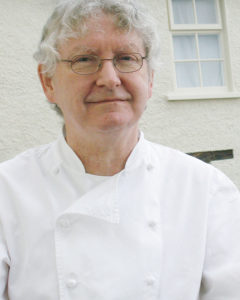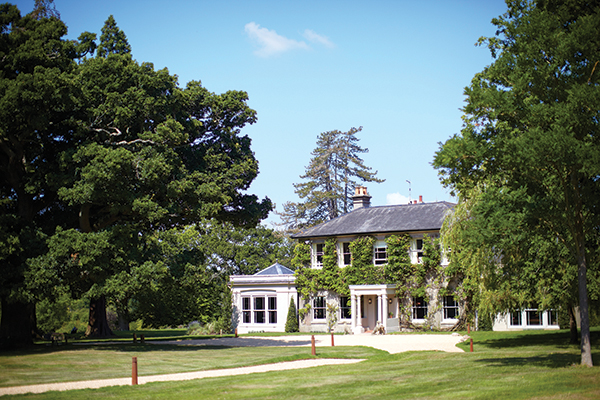In addition to building good relations with customers and staff, it is vital that restaurants and hotels establish a bond with those living nearby, as having them on-side can help boost a business, says David Harris
Are you friendly with your neighbours? If you doubted that this is just as important for a restaurant or hotel as for a homeowner, then recent events at Raby Hunt, the two-Michelin-starred restaurant near Darlington, might change your mind.
Opposition letters raised concerns about both noise and parking, which one described as "chaos", adding that the changes would "compound the already poor relations between the restaurant and the village". None of this summoned up the best picture of a friendship between restaurant and community.
Nevertheless, Darlington Council did recommend that planning permission for the changes should be granted, although it is understood that councillors do want to further assess the parking.
Whatever happens in the end, it seems clear that not all the villagers regard the restaurant with undiluted affection. Some seem upset, even though chef-patron James Close - who retained his two stars in the latest Michelin Guide - argued that extra bedrooms could in fact decrease the amount of traffic arriving and leaving the restaurant at night.
That said, Raby Hunt is not the first and is unlikely to be the last place to upset those living nearby. Last year Doug McMaster, proprietor of 'zero-waste' restaurant Silo in Brighton, got into hot water after a magazine article quoted him saying that Brighton was "not the town for such a forward-thinking restaurant" and that it would be better off in London.
Unsurprisingly, the article prompted a certain amount of local outrage, which was covered in both the local and national press. It also upset McMaster himself, who said that his words had been twisted. He has attempted to repair some of the PR damage by making it clear that he is a big supporter of both Brighton and London. His response to the article, still available on Silo's website, was written with a passion which underlines how important it is for hospitality professionals to keep the support of their local population.
In it he says: "I love Brighton and everything about this city. London and Brighton are different, but both excellent. Unfortunately, half of my opinion has been removed here. I love cooking in Brighton, I am excited about cooking in London. Many of our Silo customers will know of the wonderful options for food lovers in both cities. Ask any of my fellow chefs and the excitement about London is there, it should be! It is one of the greatest cities in the world for food and is where I learnt to cook. It holds a special place in my heart."
Since that statement McMaster has chosen not to comment much on his experience, perhaps a case of being once bitten, twice shy. Similarly, James Close has decided to keep his counsel to himself, as Raby Hunt continues to shine in the Michelin firmament while trying to make peace with the villagers.
Close to home
"The association seems to object to everything," he says, wearily. "However, most of our residents are very good to us and seem pleased to have a Michelin-starred restaurant nearby. Many of them become customers and, of course, we try to treat them well."
Moore, who has run several restaurants over the years, including his Michelin-starred flagship, adds that when he does open somewhere he makes an "effort to engage" with the local community. In many cases this is literally by knocking on doors to introduce himself and pass on his phone number in case there are any problems.
Moore concurs with other restaurateurs that where noise issues do occur it is often to do with extractor fans, although he adds that he is puzzled why those in search of total silence choose to live in central London.
An axe to grind
Just as Moore has become frustrated with objections from one particular place (in his case, the local residents' association), so other restaurateurs identify the problem of repeated objections from individuals as among the most upsetting.
Andrew du Bourg, formerly head chef at Chewton Glen in New Milton, Hampshire, and the Michelin-starred Club Gascon in London, now plies his trade at the Elderflower restaurant in Lymington, Hampshire. His particular bÁªte noire is one local who, he says, has made objections "from day one". According to du Bourg, this started with opposition to restoration plans for the building, which resulted in visits from New Forest District Council to check on the work that was being carried out. The restaurant was given the green light to continue, but further objections followed when the business tried to put some tables outside and du Bourgnow feels that "anything new is likely to be challenged".
One thing that seems unlikely here, however, is any objection to noise. He says: "Lymington is a quiet town and our guests are conservative by nature, so they come and go in a very civilised way."
Despite the objections, du Bourg has made considerable efforts to integrate into the town, not just by welcoming many locals to the restaurant, but also by hosting community events, such as a Christmas party on the quayside and visiting a local primary school. This sort of thing always seems to help integration.
After the dust settles
ghbourly disputes are not just a modern phenomenon. When Shaun Hill applied to open the Merchant House in Ludlow a quarter of a century ago, he found himself facing a petition from residents who didn't want it.
He explains: "You have to remember that this was a proposal for a seven-table restaurant and residents were apparently concerned that the drains wouldn't cope and that drunks would be roaming the streets."
This was at a time before Ludlow had become renowned for its restaurants, although it had a reputation for excellent food shops, which was one of the reasons why Hill wanted to be there.
In the event he welcomed the pre-publicity that the petition attracted and remembers that the lead objector "turned out to be a lovely bloke". He adds: "All he cared about, like everybody else, was the value of his house, which went up considerably after we moved in, I'm pleased to say."
Hill's experience seems to suggest that even if you do have objectors, they can be turned into supporters if they are handled in the right way. Others have had similar experiences, with hotels as well as restaurants. Robin Hutson, chairman and chief executive of Lime Wood and Home Grown Hotels, puts great emphasis on making sure that his neighbours are happy (see below).
And it is worth remembering that neighbours are not just potential customers and supporters, but also staff. Nicholas Gorton, general manager at the Links House hotel at Royal Dornoch in the Scottish Highlands, says that having a good connection with the local area is vital for recruitment. Gorton, who came to Links House after more than 30 years as general manager at Inver Lodge in Lochinver, says that most hospitality businesses in rural areas rely heavily on staff who live nearby.
He adds: "You need to get along with other local hospitality businesses too, because our guests will frequently ask us about dining at other restaurants in the area. We need to know the good places to recommend and it's good when they recommend us as well. Getting along well with others is an important part of cultivating your own business success."
Being neighbourly, it seems, is about a lot more than just avoiding objectors.
Tips for getting on with your neighbours
•Introduce yourself to those nearby before you open and explain what you are planning to do.
•Invite locals to your opening - make them feel involved. They can be among your best ambassadors.
•Hold annual events, such as a Christmas party, to which you invite immediate neighbours.
•Consider getting involved with local institutions, such as schools and charities.
•Employ local people as staff. Not only can they help run your establishment but their loyalty is likely to enhance your reputation.
Robin Hutson
He adds: "One of the big benefits is that if local people are on your side, they can be an extremely effective marketing arm. If they like you, then it is going to increase your business."
Before opening a new hotel, Hutson always tries to do local presentations to ensure people in the area know what to expect, and he usually hosts a drinks party early on.
He says: "We always try to stress to people that we are not going to be insensitive to the surroundings. In the main, people are very positive, especially if the building we are taking on is slightly run-down and we are going to improve it."
The main issues, says Hutson, are usually traffic going to and from a hotel, noise and, increasingly, odours.
t Hutson admits that however careful a hotel is in its opening phase, there is no guarantee that everything will run smoothly. There were some planning questions, for example, to the proposed opening of the Pig near Arundel in West Sussex, but these have now been overcome and the hotel is scheduled to open in 2020.
Hutson says: "In broad terms, I think you do have to show people that you are going to be a considerate and responsible operator, but once we are open, we don't really have an issues with locals. Most of the time they really like the fact that we are there."
Continue reading
You need to be a premium member to view this. Subscribe from just 99p per week.
Already subscribed? Log In














